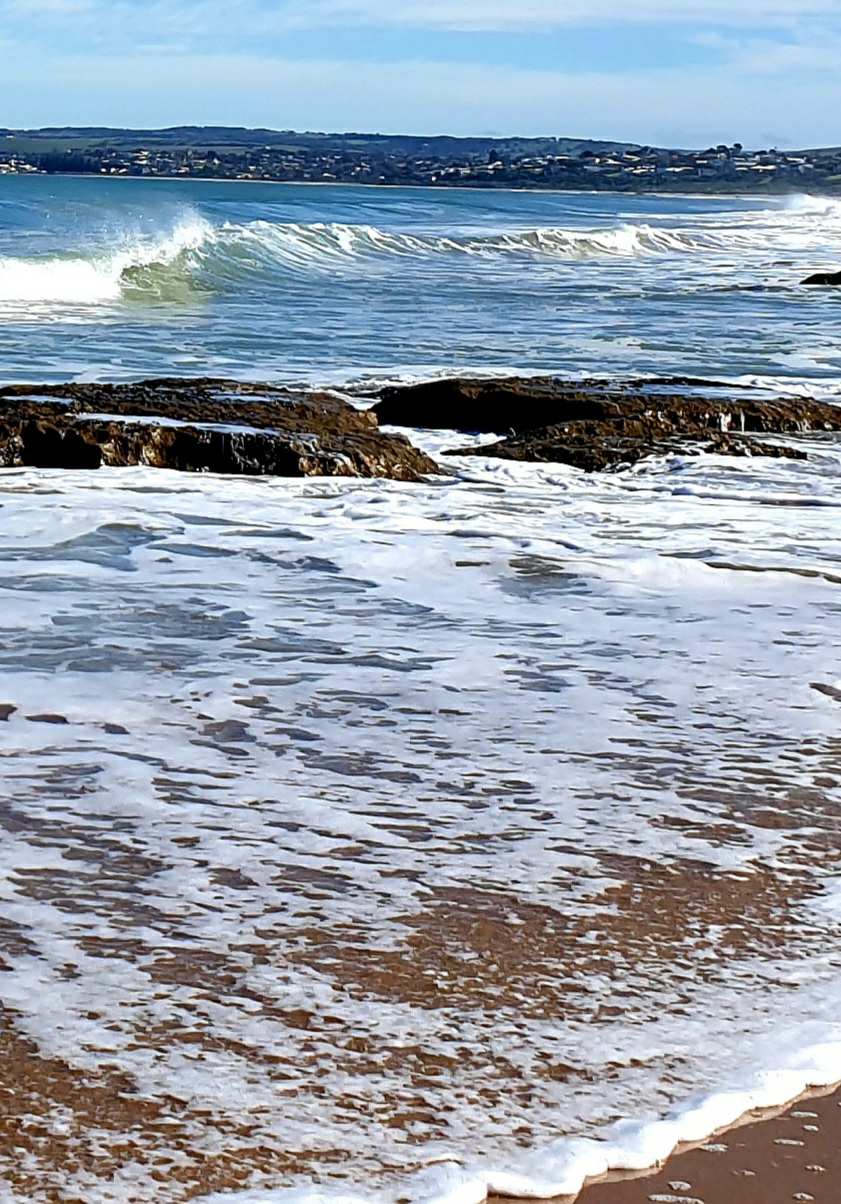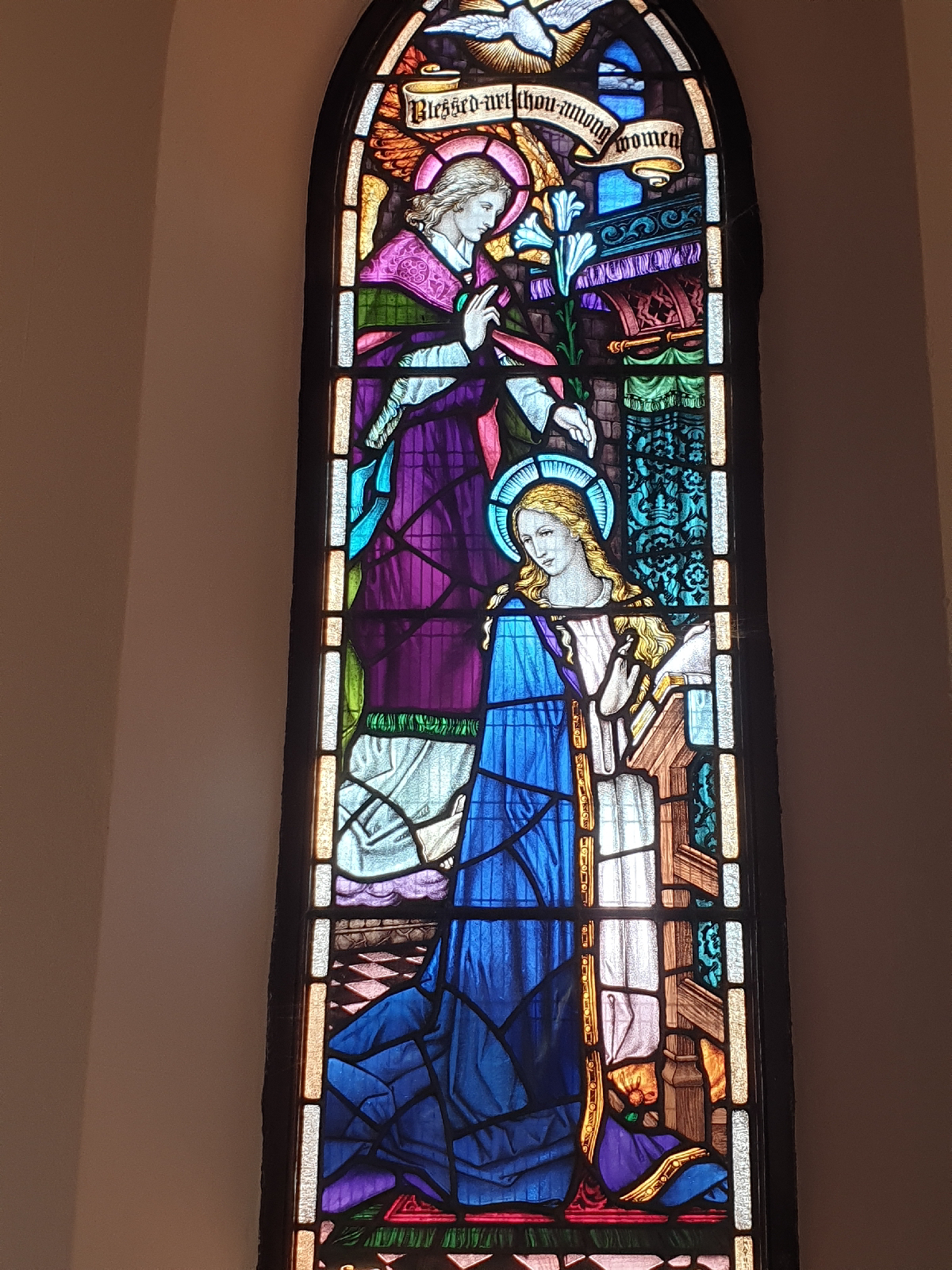‘The King
and I’ – the feast of Christ the King 2023
When the
parish bought a new copy of the Prayer Book an errata slip fluttered like a
cabbage white butterfly from between the brightly coloured ribbon markers and
stiff paper. Its not often that a reader
is faced with an errata slip these days.
I was
intrigued by this little slip of paper. It reminded me of the story of one of
the early editions of the King James Bible in which by oversight the word ‘not’
had been omitted from ‘thou shalt not commit adultery.’ What an erratum Another edition had a misprint
where the name Judas replaced Jesus.
What could
be the mistake be in our new prayer books? The errata slip asked the owner to
erase the name Queen Elizabeth and write the name King Charles into the prayers
where the monarch is mentioned.
An erratum,
the admission of an error, the invitation to take up a pen and make a change.
Over the
past three weeks I have been engaged in a kind of changemaking as I have
explored a series of parables told by Jesus. These parables are placed by the
Matthew community, which gathered stories and teachings of Jesus, after Jesus’
entry into the temple to overthrow the tables of the money changers and sellers
of pigeons, transactions required for the sacrifices mandated by the law. He
continues with his blasphemy and excoriates (I love that word) or verbally rips
into the religious as false guides and shepherds. In so doing Jesus places himself within the
tradition of the Spirit guided prophets in his words and actions. However, he
seemed to his hearers to be going way beyond into new territory threatening the
fragile and uneasy peace between the different religious allegiances but also
to the shaky peace with the Romans.
The Church
of Matthew, rather like the exiles visited by Ezekiel and rather like us lived
in an era of anxiety and loss of hope where the people had lost the trust of
their political and religious leaders. We too live in an era where the Church
in nations like Australia are struggling to find a new identity.
What is a
parable all about? A parable’s purpose is to overturn our assumptions. The
treasure is sometimes buried deep within the story, or like a lustrous pearl hidden
in a drab shell. A parable reminds of something we had forgotten we had lost.
Hidden in the story is a little erratum slip inviting us to a course
correction.
I have been
suggesting that these Matthean parable seem to offer a moral lesson but can be
read as overthrowing our assumptions. Last week I suggested that the lazy and
wicked slave is the one who is in the right. He refuses to suck up to the rapacious
absentee Landlord. Like Jesus this slave is thrown out into the darkness. Could
such a Master be Christ? Matthew the tax gatherer who fleeced the people, had
been turned by Jesus to the new path. How could Matthew commending a way of
life that hurt especially the poor?
Today we
hear the parable about the sheep and the goats and again I am suggesting that
the straightforward story sounds a discordant note. These animals were
religiously symbolic. The lamb of Passover, the sheep representing the people
of God. The goat became a scapegoat to represent forgiveness driven out into
the wilderness to die with the sins of the people.
Once again,
the King seems at first sight to represent Christ. He rewards those sheep who
do the right thing and the goats roast for ever in eternal punishment. But
think more deeply about the wrongness of this story. An unforgiving King contradicts Jesus own
words to Peter about forgiving seventy times seven. It negates so much of Jesus
own teaching especially in the Matthean Beatitudes. It is a punitive
punishment, revenge beyond all revenge. Doing good seems to be incentivised by
the promise of eternal life. It is a kind of snakes and ladders story, a
bribing and blaming kind of lesson. The judge seems more like a tyrant than the
Jesus who will welcome the woman who will anoint him in the house of Simon the
Leper. My Kingdom Jesus seems to say is the reverse of this story.
However, the
punishing God has been used by the Church often to promote law and order or to
crush dissent. You will still hear people asking, if there is no God there is
nothing to deter people from committing crime. When the last census results
appeared writers in newspapers warned that the decline in Christians
represented the moral corrosion of Australia.
So, I ask
you, what kind of God is being promoted by identifying Christ with this
punitive judge? It is true that the Matthew Church does this in verse 31 with
another reference to the book of Daniel. Jesus is framed here in terms of the
fulfilment of Jewish apocalyptic.
This however
is not an interpretation of the parable that l that I can give my allegiance to
since in its straightforward reading it contradicts the teaching of Jesus
across all four gospels. The story read in a literal way contradicts the three
denials given by Jesus to the adversary in the temptation story. The Good
Samaritan story in Luke has Jesus commend a foreigner, a goat you might say who
does the right thing from compassion without any expectation of a reward. In fact, the Samaritan pays the bill of the
injured person. Jesus likewise models a selfless compassion without looking for
a reward. Jesus dies on the cross to call the world to a loving compassionate
and just way of life seemingly without any hope as he calls in despair to a
seemingly absent God.
So how can
we read this story told by Jesus to overturn our understanding? Jesus here I
believe mirrors back to us our desire to be loved, liked, and respected and we
well thought of by people whose opinion we value. Jesus also mirrors back to us
our human desire to see ourselves as good and others as bad. Matthew’s gospel
struggles especially with this since it emerges from a bitter conflict between
the Torah and the Jesus Jews. In fact, in the time of Jesus, domestic sheep and
goats looked very alike from a distance and you had to get close to tell them
apart. When we are honest, we might recognise both goat and sheep tendencies
within us. We can push away part of ourselves we don’t like or lock up memories
for life.
This sermon,
I acknowledge is complex and perhaps uncomfortable so let me try and point you
to a resolution.
I believe
that the life and teaching of Jesus can only be seen through the lens of the
resurrection and glorification of Jesus.
That is, the earthly rabbi of Galilee becomes one with the Christ,
universal wisdom. The radiant light of Love illuminates justice and mercy ever
present in our midst. We see this in the icon.
Justice is balanced by mercy and is held by the Christ, Love in its
fullness.
Yes, there
is heaven and hell. We look around at the planet we have trashed, peoples lives
wrecked by war and injustice and the inequalities and challenges of our own
society. Terrible things happen, we make terrible mistakes, and sometimes
people do terrible things or say terrible things to us or people we love. Yet we can be kind, compassionate creative
and generous. Heaven and hell are close by and goats and sheep live together in
the task of being human.
I believe in
a final healing and restoration at the close of the age, a universal
restoration. This has always been preached in the Church especially in parts of
the Orthodox Church but also by some Anglican theologians. It is a minority
view but for me it is the only belief consistent with the Gospel of Jesus and this
final restoration gives me hope for ministry in this age of anxiety.
I am with
those classic Anglican theologians who have promoted an intermediate state after
death where we can be made whole, face up to our path and choose the Light. Those
who have missed out can have another chance. Those who have died in despair and
anger find healing. Beyond time there is all the time to travel further into
God and this may indeed bring the pain of facing up to the damage I have done
in my life. We could call this ‘purgatory’, a place of healing where eventually
I with all of creation will be drawn into the love of God in Christ Jesus.
That’s why I pray for the dead and encourage others to do the same.
Some of you
will reject this as false teaching since the mainstream Church keeps on its
theological books the carrot and stick of heaven and hell. Only good Christians
with a few exceptions are saved, the goats forever roast on the BBQ
Christian
Universalism for me brings hope, joy, and confidence since through the risen
crucified One all can be made new. Indeed,
Matthew’s Gospel concludes with a reminder that he; Jesus will remain to the
close of the age among his friends. He will always remain faithful and in their
midst making whole and calling them to compassionate care. They are to immerse
the world in the way of non-violent love and not lord it over others. In Ephesians
1:23. Paul writes of the Church less as an institution more as a vision ‘The
fullness of all things with all things filling’ This is the completeness
and the salvation of all even of the Adversary and the rebel angels. Jesus says
in John, ‘when I am lifted up, I will draw all to myself.’ That means all, not
some, the whole creation. That is the fiery love which is beyond my
understanding.
The errata
slip tells me to insert the name of the new King. May you and I write on our
hearts the Christ of hope who cannot, who will not fail, the love that lets no
one go.
An erratum
can be corrected. The owner takes a pen and carefully makes the change which
the publisher has indicated reflects the truth. Matthew seems to suggest an
obvious conclusion. In fact, his community even during their trauma over mass
killings and tearing down of the temple in 70 CE stretches us to Christ among
us who is never a tyrant King but in fullness lives among us and sets us free
to be witnesses of his eternal love in our age of anxiety and strife.







